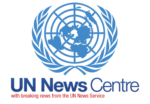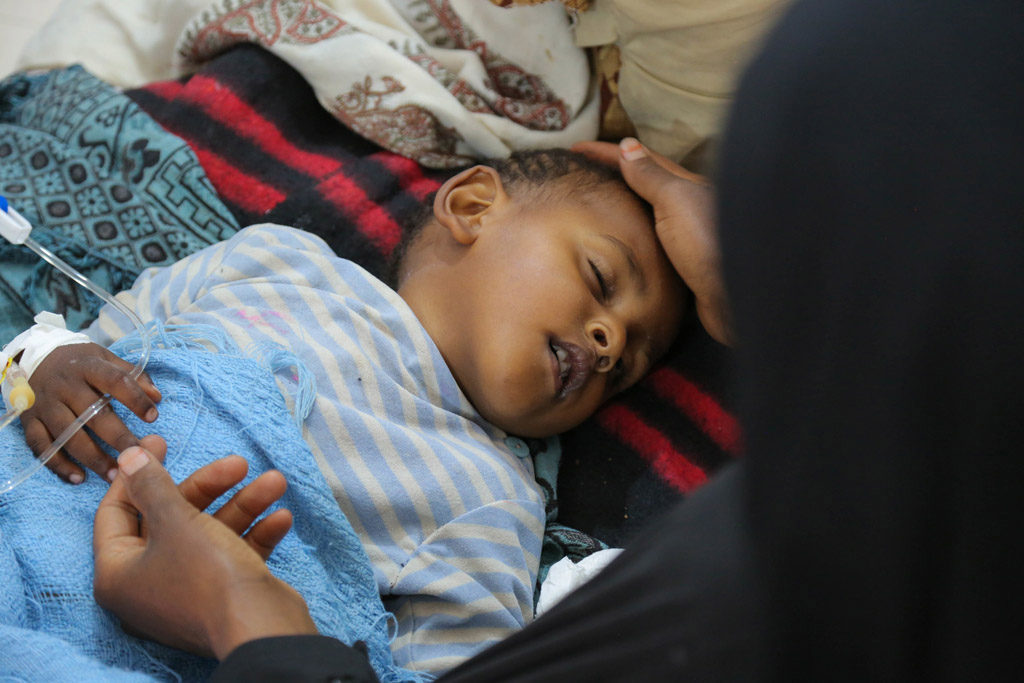Children Hardest Hit as Cholera Spreads in War-Torn Yemen – UNICEF
HEALTH, 19 Jun 2017
UN News Centre – TRANSCEND Media Service
 14 Jun 2017 – As the outbreak of cholera in Yemen continues to spread at an alarming rate – with terrible impact on children – the United Nations Children’s Fund (UNICEF) has called for immediate support to enable the country’s health workers respond or risk even more deaths from the deadly disease.
14 Jun 2017 – As the outbreak of cholera in Yemen continues to spread at an alarming rate – with terrible impact on children – the United Nations Children’s Fund (UNICEF) has called for immediate support to enable the country’s health workers respond or risk even more deaths from the deadly disease.
In a statement yesterday, Meritxell Relaño, the UNICEF Representative in Yemen, said that despite massive challenges, health workers “have spared no effort in responding to the emergency – even when their salaries have not been paid for nearly nine months.”
“Without an urgent solution to pay health workers, more children will die – no matter how much humanitarian aid is delivered to the country,” she added.
According to the UN agency, more than 124,000 cholera cases have been recorded over the past month – more than half of them children, and many who were already suffering from malnutrition.
Children, also account for nearly a quarter of the 923 deaths due to the disease, which is overwhelming what remains of a health system and sanitation system already at the verge of collapse due to the conflict, now into its third year.

A child with severe diarrhoea or cholera receives treatment at the Sab’een Hospital in Sana’a, Yemen,on 12 May 2017. © UNICEF/UN065873/Alzekri
Now, this outbreak has left hospitals and treatment centres are struggling to cope with the large number of patients coming in from across the country and medical supplies, including vital medicines and intravenous fluids also running out.
UN and humanitarian partners are trying to respond and have airlifted some 67 tons medicinal supplies. However, the need far outpaces the supply, underscoring the need to ensure relief and health workers have safe and unrestricted access as well as resumption of imports of critical commodities, including urgently needed medicines.
“With no end in sight to the conflict, the cholera outbreak – and potentially other disease will continue to stalk the lives of children,” warned Ms. Relaño.
DISCLAIMER: The statements, views and opinions expressed in pieces republished here are solely those of the authors and do not necessarily represent those of TMS. In accordance with title 17 U.S.C. section 107, this material is distributed without profit to those who have expressed a prior interest in receiving the included information for research and educational purposes. TMS has no affiliation whatsoever with the originator of this article nor is TMS endorsed or sponsored by the originator. “GO TO ORIGINAL” links are provided as a convenience to our readers and allow for verification of authenticity. However, as originating pages are often updated by their originating host sites, the versions posted may not match the versions our readers view when clicking the “GO TO ORIGINAL” links. This site contains copyrighted material the use of which has not always been specifically authorized by the copyright owner. We are making such material available in our efforts to advance understanding of environmental, political, human rights, economic, democracy, scientific, and social justice issues, etc. We believe this constitutes a ‘fair use’ of any such copyrighted material as provided for in section 107 of the US Copyright Law. In accordance with Title 17 U.S.C. Section 107, the material on this site is distributed without profit to those who have expressed a prior interest in receiving the included information for research and educational purposes. For more information go to: http://www.law.cornell.edu/uscode/17/107.shtml. If you wish to use copyrighted material from this site for purposes of your own that go beyond ‘fair use’, you must obtain permission from the copyright owner.